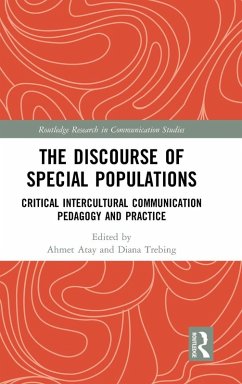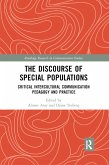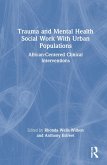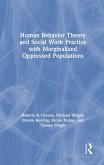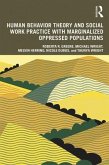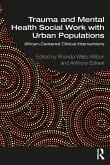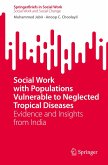The Discourse of Special Populations
Critical Intercultural Communication Pedagogy and Practice
Herausgeber: Atay, Ahmet; Trebing, Diana
The Discourse of Special Populations
Critical Intercultural Communication Pedagogy and Practice
Herausgeber: Atay, Ahmet; Trebing, Diana
- Gebundenes Buch
- Merkliste
- Auf die Merkliste
- Bewerten Bewerten
- Teilen
- Produkt teilen
- Produkterinnerung
- Produkterinnerung
This book uses the framework of critical intercultural communication pedagogy to generate a discussion about pedagogical issues surrounding students who are categorized as "special populations", focusing on culturally sensitive pedagogical methods to educate all students.
Andere Kunden interessierten sich auch für
![The Discourse of Special Populations The Discourse of Special Populations]() The Discourse of Special Populations55,99 €
The Discourse of Special Populations55,99 €![Trauma and Mental Health Social Work With Urban Populations Trauma and Mental Health Social Work With Urban Populations]() Trauma and Mental Health Social Work With Urban Populations167,99 €
Trauma and Mental Health Social Work With Urban Populations167,99 €![Human Behavior Theory and Social Work Practice with Marginalized Oppressed Populations Human Behavior Theory and Social Work Practice with Marginalized Oppressed Populations]() Roberta R. GreeneHuman Behavior Theory and Social Work Practice with Marginalized Oppressed Populations176,99 €
Roberta R. GreeneHuman Behavior Theory and Social Work Practice with Marginalized Oppressed Populations176,99 €![Human Behavior Theory and Social Work Practice with Marginalized Oppressed Populations Human Behavior Theory and Social Work Practice with Marginalized Oppressed Populations]() Roberta R. GreeneHuman Behavior Theory and Social Work Practice with Marginalized Oppressed Populations54,99 €
Roberta R. GreeneHuman Behavior Theory and Social Work Practice with Marginalized Oppressed Populations54,99 €![Trauma and Mental Health Social Work With Urban Populations Trauma and Mental Health Social Work With Urban Populations]() Trauma and Mental Health Social Work With Urban Populations49,99 €
Trauma and Mental Health Social Work With Urban Populations49,99 €![Social Work Practice and Research with Diverse Populations Social Work Practice and Research with Diverse Populations]() Social Work Practice and Research with Diverse Populations113,99 €
Social Work Practice and Research with Diverse Populations113,99 €![Social Work with Populations Vulnerable to Neglected Tropical Diseases Social Work with Populations Vulnerable to Neglected Tropical Diseases]() Muhammed JabirSocial Work with Populations Vulnerable to Neglected Tropical Diseases38,99 €
Muhammed JabirSocial Work with Populations Vulnerable to Neglected Tropical Diseases38,99 €-
-
-
This book uses the framework of critical intercultural communication pedagogy to generate a discussion about pedagogical issues surrounding students who are categorized as "special populations", focusing on culturally sensitive pedagogical methods to educate all students.
Produktdetails
- Produktdetails
- Verlag: Routledge
- Seitenzahl: 220
- Erscheinungstermin: 3. Oktober 2017
- Englisch
- Abmessung: 235mm x 157mm x 17mm
- Gewicht: 476g
- ISBN-13: 9781138673984
- ISBN-10: 1138673986
- Artikelnr.: 49372801
- Herstellerkennzeichnung
- Libri GmbH
- Europaallee 1
- 36244 Bad Hersfeld
- gpsr@libri.de
- Verlag: Routledge
- Seitenzahl: 220
- Erscheinungstermin: 3. Oktober 2017
- Englisch
- Abmessung: 235mm x 157mm x 17mm
- Gewicht: 476g
- ISBN-13: 9781138673984
- ISBN-10: 1138673986
- Artikelnr.: 49372801
- Herstellerkennzeichnung
- Libri GmbH
- Europaallee 1
- 36244 Bad Hersfeld
- gpsr@libri.de
Ahmet Atay is Assistant Professor in the Department of Communication at The College of Wooster, USA. Diana Trebing is Associate Professor in the Department of Communication at Saginaw Valley State University, USA.
Introduction
Ahmet Atay and Diana Trebing
Part 1: Theories and Approaches
1. All Students Are Special (Though Some Are More Special Than Others)
Sara DeTurk
2. Autoethnography as a Catalyst for Pedagogical Change for Special
Populations of Students
David H. Kahl, Jr.
3. Reading Between the Lines: Critical Communication Pedagogy and Textbook
Development
Deanna Fassett and Kathryn B. Golsan
4. Empathetic Literacy and Intercultural Storytelling: Compasses and
Architecture
Carolyn Calloway-Thomas
Part II: Special Populations in Different Contexts
5. Complicating Special Population Research: A Case for Non-Native, English
Speaking International Students on US-American Campuses
Satoshi Toyosaki and Yusaku Yajima
6. Queering the Discourse of "Special Populations": Queer/Critical
Intercultural Communication Pedagogy
Ahmet Atay
7. Students Writing Culture: Strategies for Illuminating Pluralistic Voices
Through Critical Intercultural Communication Pedagogy
Amy Heuman
8. Teaching Race in Communication Courses
Anthony Esposito and Ronald Raymond
9. Higher Education in Prison: Critical Pedagogy and Incarcerated Student
Identities
Jelena Petrovic, Andy Eisen, and Pamela Cappas-Toro
10. "The Big Words Swirled": Dialogue, Reciprocity, and Rigorous Critical
Pedagogy in a Prison Classroom
Adam Lauver and Jeremy Make
11. First-Generation Students' Privacy Management Rules with Parents:
Advocating for a Relational Ethic of Listening through Critical
Communication Pedagogy
Alyssa McFarlan, Walter Abrego, Sherokee Eder, Sara Koch, Crystal
Hernandez, and C. Kyle Rudick
Ahmet Atay and Diana Trebing
Part 1: Theories and Approaches
1. All Students Are Special (Though Some Are More Special Than Others)
Sara DeTurk
2. Autoethnography as a Catalyst for Pedagogical Change for Special
Populations of Students
David H. Kahl, Jr.
3. Reading Between the Lines: Critical Communication Pedagogy and Textbook
Development
Deanna Fassett and Kathryn B. Golsan
4. Empathetic Literacy and Intercultural Storytelling: Compasses and
Architecture
Carolyn Calloway-Thomas
Part II: Special Populations in Different Contexts
5. Complicating Special Population Research: A Case for Non-Native, English
Speaking International Students on US-American Campuses
Satoshi Toyosaki and Yusaku Yajima
6. Queering the Discourse of "Special Populations": Queer/Critical
Intercultural Communication Pedagogy
Ahmet Atay
7. Students Writing Culture: Strategies for Illuminating Pluralistic Voices
Through Critical Intercultural Communication Pedagogy
Amy Heuman
8. Teaching Race in Communication Courses
Anthony Esposito and Ronald Raymond
9. Higher Education in Prison: Critical Pedagogy and Incarcerated Student
Identities
Jelena Petrovic, Andy Eisen, and Pamela Cappas-Toro
10. "The Big Words Swirled": Dialogue, Reciprocity, and Rigorous Critical
Pedagogy in a Prison Classroom
Adam Lauver and Jeremy Make
11. First-Generation Students' Privacy Management Rules with Parents:
Advocating for a Relational Ethic of Listening through Critical
Communication Pedagogy
Alyssa McFarlan, Walter Abrego, Sherokee Eder, Sara Koch, Crystal
Hernandez, and C. Kyle Rudick
Introduction
Ahmet Atay and Diana Trebing
Part 1: Theories and Approaches
1. All Students Are Special (Though Some Are More Special Than Others)
Sara DeTurk
2. Autoethnography as a Catalyst for Pedagogical Change for Special
Populations of Students
David H. Kahl, Jr.
3. Reading Between the Lines: Critical Communication Pedagogy and Textbook
Development
Deanna Fassett and Kathryn B. Golsan
4. Empathetic Literacy and Intercultural Storytelling: Compasses and
Architecture
Carolyn Calloway-Thomas
Part II: Special Populations in Different Contexts
5. Complicating Special Population Research: A Case for Non-Native, English
Speaking International Students on US-American Campuses
Satoshi Toyosaki and Yusaku Yajima
6. Queering the Discourse of "Special Populations": Queer/Critical
Intercultural Communication Pedagogy
Ahmet Atay
7. Students Writing Culture: Strategies for Illuminating Pluralistic Voices
Through Critical Intercultural Communication Pedagogy
Amy Heuman
8. Teaching Race in Communication Courses
Anthony Esposito and Ronald Raymond
9. Higher Education in Prison: Critical Pedagogy and Incarcerated Student
Identities
Jelena Petrovic, Andy Eisen, and Pamela Cappas-Toro
10. "The Big Words Swirled": Dialogue, Reciprocity, and Rigorous Critical
Pedagogy in a Prison Classroom
Adam Lauver and Jeremy Make
11. First-Generation Students' Privacy Management Rules with Parents:
Advocating for a Relational Ethic of Listening through Critical
Communication Pedagogy
Alyssa McFarlan, Walter Abrego, Sherokee Eder, Sara Koch, Crystal
Hernandez, and C. Kyle Rudick
Ahmet Atay and Diana Trebing
Part 1: Theories and Approaches
1. All Students Are Special (Though Some Are More Special Than Others)
Sara DeTurk
2. Autoethnography as a Catalyst for Pedagogical Change for Special
Populations of Students
David H. Kahl, Jr.
3. Reading Between the Lines: Critical Communication Pedagogy and Textbook
Development
Deanna Fassett and Kathryn B. Golsan
4. Empathetic Literacy and Intercultural Storytelling: Compasses and
Architecture
Carolyn Calloway-Thomas
Part II: Special Populations in Different Contexts
5. Complicating Special Population Research: A Case for Non-Native, English
Speaking International Students on US-American Campuses
Satoshi Toyosaki and Yusaku Yajima
6. Queering the Discourse of "Special Populations": Queer/Critical
Intercultural Communication Pedagogy
Ahmet Atay
7. Students Writing Culture: Strategies for Illuminating Pluralistic Voices
Through Critical Intercultural Communication Pedagogy
Amy Heuman
8. Teaching Race in Communication Courses
Anthony Esposito and Ronald Raymond
9. Higher Education in Prison: Critical Pedagogy and Incarcerated Student
Identities
Jelena Petrovic, Andy Eisen, and Pamela Cappas-Toro
10. "The Big Words Swirled": Dialogue, Reciprocity, and Rigorous Critical
Pedagogy in a Prison Classroom
Adam Lauver and Jeremy Make
11. First-Generation Students' Privacy Management Rules with Parents:
Advocating for a Relational Ethic of Listening through Critical
Communication Pedagogy
Alyssa McFarlan, Walter Abrego, Sherokee Eder, Sara Koch, Crystal
Hernandez, and C. Kyle Rudick

